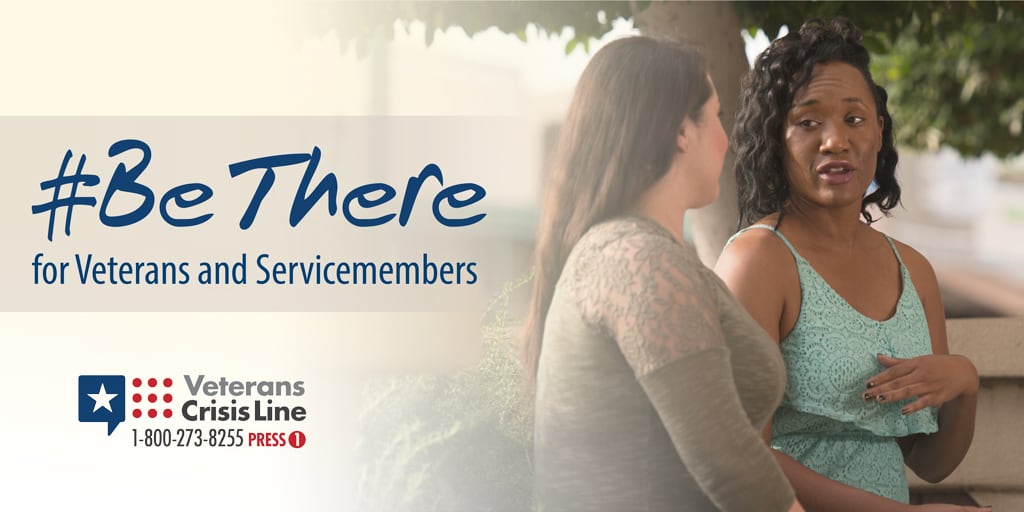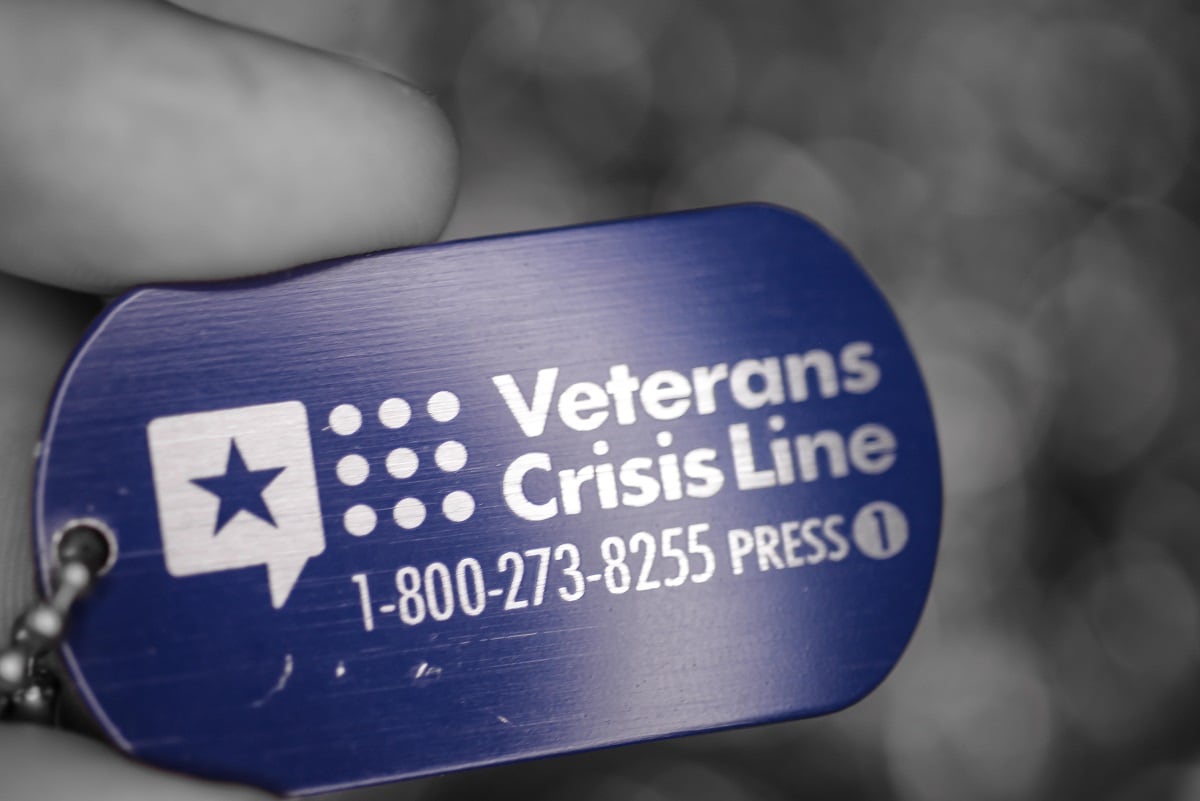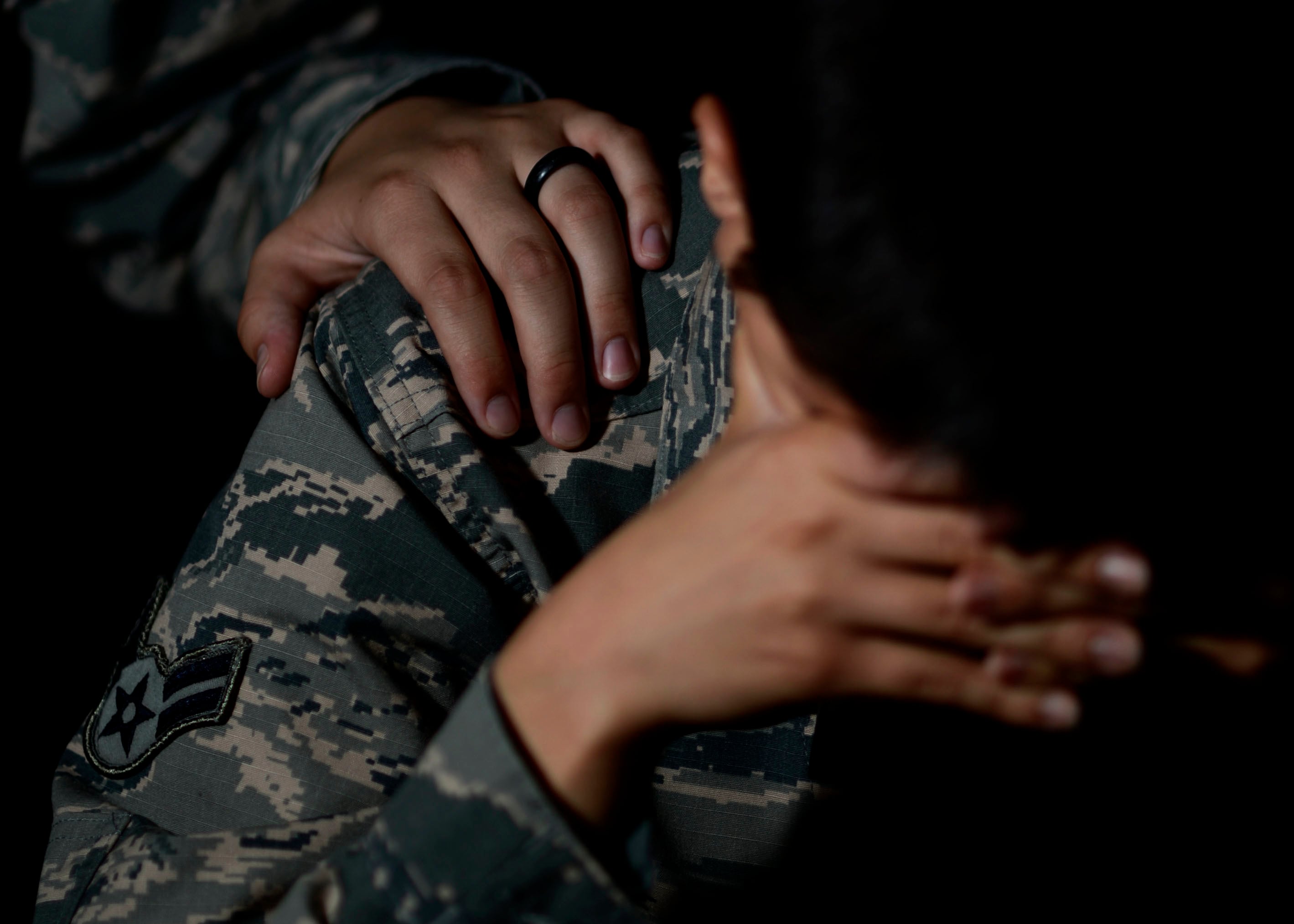WASHINGTON — Veterans Affairs officials in coming weeks will roll out new partnerships with at least seven states to focus attention and resources on preventing veterans suicide, re-upping a successful tool from their earlier campaigns to end veterans homelessness.
Dr. Keita Franklin, director of VA’s office of suicide prevention, said Tuesday during a congressional staff briefing on the topic that department officials will be announcing a new “governor’s challenge” to expand ongoing prevention programs to audiences outside the veterans community.
“VA must lead on this, and it’s our responsibility to prevent veterans suicide,” she said. “But when I can have a partner take our training, have them pass out our crisis number, develop peer mentoring models in workplaces, if I can help them make sure veterans have access to health care, that’s when we know we’re doing the work.”
“We’re shifting from a model that says ‘let’s sit in our hospitals and wait for people to come to us’ and take it to them.”
RELATED

About 20 veterans a day nationwide commit suicide, a figure that has remained largely unchanged in recent years. Of that number, about 14 will have had little or no contact with VA health services.
For the last year, VA officials have been using a “mayor’s challenge” model to work with 27 large cities on ways to better share VA crisis resources, train employees in suicide awareness and intervention, and coordinate existing support programs with national ones.
The move followed similar outreach activities surrounding veterans homelessness. Advocates have praised the approach as a way to include communities in efforts to help veterans, creating more meaningful connections at a local level.

“We know that integration of care is vital, not only within health systems, but within entire communities, to address challenges like suicide in the veteran population,” said Heather O’Beirne Kelly, director of military and veterans health policy at the American Psychological Association.
“VA was instrumental in addressing veteran homelessness through a similar mayoral challenge, and we’ve seen success in other arenas. The Memphis police department’s crisis intervention team, for example, works with the VA medical center to ensure that veterans who come into contact with the criminal justice system get appropriate diversion and wraparound care.”
Franklin said the “mayor’s challenge” will not expand to statewide offices in an initial set of state partners: Arizona, Colorado, Kansas, Montana, New Hampshire, Texas and Virginia.
“The key is to work on a local plan,” she said. “Who are the local influencers? What are your measures of effectiveness over time?”
RELATED

Work will also be coordinated with the Department of Health and Human Services.
Dr. Richard McKeon, chief of suicide prevention efforts at the Substance Abuse and Mental Health Services Administration, said many veterans in distress may first reach out to local hospitals or doctors for help. That makes informing those organizations of veteran-specific resources critical.
VA officials are expected to formally announce the new state partnerships next month.
To contact the Veteran Crisis Line, callers can dial 1-800-273-8255 and select option 1 for a VA staffer. Veterans, troops or their families members can also text 838255 or visit VeteransCrisisLine.net for assistance.
Leo covers Congress, Veterans Affairs and the White House for Military Times. He has covered Washington, D.C. since 2004, focusing on military personnel and veterans policies. His work has earned numerous honors, including a 2009 Polk award, a 2010 National Headliner Award, the IAVA Leadership in Journalism award and the VFW News Media award.





